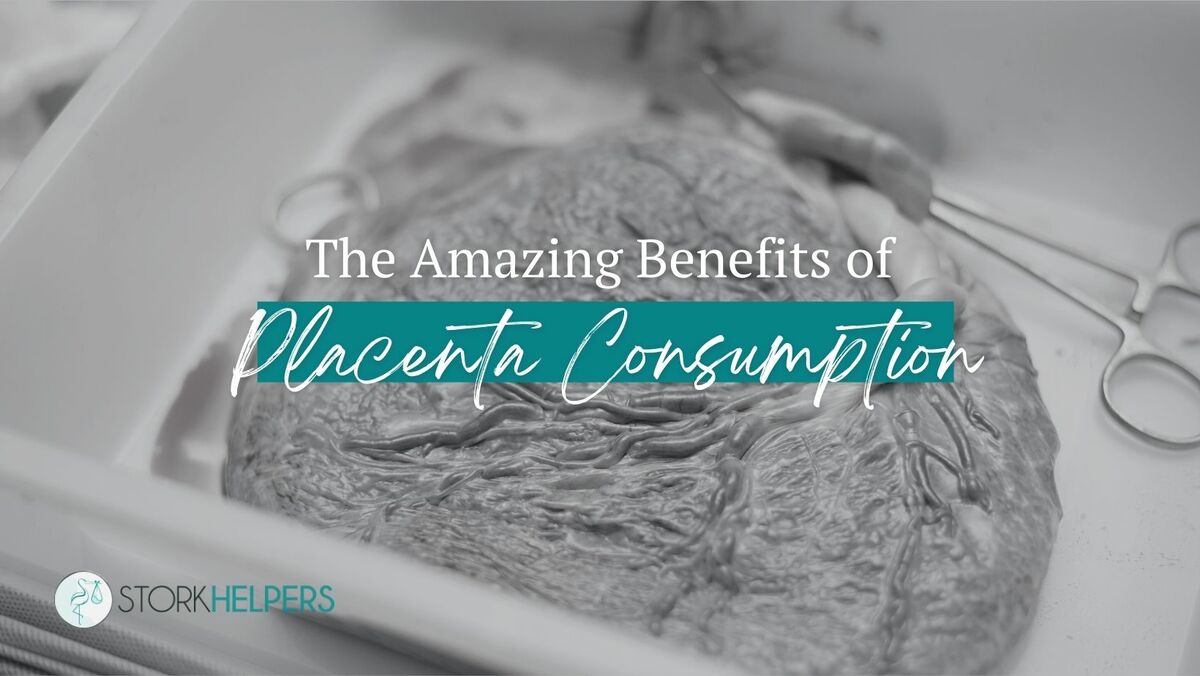The Amazing Benefits of Placenta Consumption

Childbirth is one of the most significant moments in a woman’s life. After delivering her baby, the placenta follows shortly after.
Many mamas choose to have their placenta discarded after birth, but they are unknowingly throwing away many amazing benefits that the placenta can offer when consumed.
When encapsulated, the placenta can be taken just like any herbal supplement. Since the placenta comes from your body, it is all-natural and contains many hormones, vitamins, and minerals that are lost during childbirth.
There are numerous benefits to placenta consumption including less severe postpartum depression, and improved milk production. This article will go over some of the finer points of placenta consumption and what benefits they can offer new mamas.
Why You Might Consider Placenta Encapsulation
Placenta as an organic multivitamin
After birth, the placenta has already been filtered by your body, so you won't get any chemicals or additives. The placenta is an excellent source of nutrients and hormones that are perfect for pregnant women because they can help with their postnatal recovery.
The placenta is a great source of protein, and it contains ten times as much protein as the liver. The vitamins contained in the placenta include A, B6, B12, C, and K.
The placenta helps to prevent postpartum depression
Placenta consumption is a popular postpartum practice that has been gaining attention for the role it can play in reducing the risk of postpartum depression.
The placenta, a temporary organ that helps support and nourish the baby during pregnancy, contains hormones such as dopamine, serotonin, and oxytocin. These hormones are essential to help regulate our body functions and emotions.
In addition to helping alleviate some symptoms of postpartum depression, many mamas report improved milk production after consuming their placentas.
The placenta contains many different minerals
The placenta contains many different minerals, including iron and zinc. Iron is essential for hemoglobin production, which carries oxygen from your lungs to the rest of your body.
Zinc promotes cell growth and helps cells divide properly. Zinc also helps regulate your immune system. It has been shown to reduce symptoms of the common cold when taken in high doses (more than 50 mg per day) during an infection.
Magnesium is a mineral that plays an important role in bone and cell development as well as nerve transmission and muscle contraction. For example, insufficient levels of magnesium have been linked to chronic pain due to their role in reducing inflammation. Magnesium also has anti-anxiety effects. One study found that it reduced depression symptoms by 11% after one year.
Calcium plays an important role in bone development while vitamin D promotes calcium absorption from food sources like dairy products or fortified cereals.
The placenta contains many hormones
The placenta contains many hormones there are beneficial for growth and emotional health. These hormones include progesterone, prolactin, estrogen, and cortisol.
Not only are hormones involved in the regulation of mood and appetite, but they also play a role in regulating sleep patterns, energy levels, and libido.
Why does the placenta contain so many hormones and nutrients? It’s simple! The placenta is responsible for providing nutrients to the developing baby through the umbilical cord. After the baby is delivered the placenta follows and many of those nutrients that were used for developing the growing baby remain in the umbilical cord.
The Numerous Benefits of Consuming the Placenta
Placenta consumption is an excellent choice for many mamas to overcome the early postpartum stages, especially depression and fatigue.
The placenta contains many different hormones and vitamins including progesterone, estrogen, human growth hormone (HGH), insulin-like growth factor 1 (IGF-1), nerve growth factor (NGF), prolactin, oxytocin, and serotonin. These hormones and vitamins are key for helping mama bounce back and feeling strong and confident.
These hormones can help prevent postpartum depression by balancing out mama’s mood swings after giving birth. Additionally, if mama is experiencing excessive bleeding after birth or has hemorrhoids during childbirth then consuming her placenta can help regulate both of these issues.
Looking for a trained professional to encapsulate your placenta? Look no further than Stork Helpers.
At Stork Helpers, we help you have a pregnancy and birth that is perfect for you. Never judging, always listening, Tamara knows what it takes to make sure you have the pregnancy that is right for you.
For placenta encapsulation, birth classes, pregnancy partnership, and more reach out to Stork Helpers.

